MercoPress. South Atlantic News Agency
Tag: Climate change
-
Monday, February 8th 2021 - 10:14 UTC
Brazil's OECD membership blocked by Bolsonaro's environmental policies
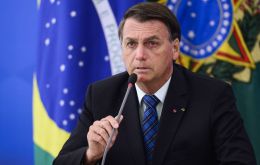
OECD’s environmental policy committee canceled a planned discussion this week about upgrading Brazil’s status in the group, the Folha de Sao Paulo newspaper reported, citing a document.
-
Monday, February 1st 2021 - 05:12 UTC
New Zealand unveils ambitious carbon neutral plan: end of fossil fuel powered cars and 15% less cows

The government of New Zealand unveiled a blueprint Sunday to phase out gasoline cars while it's dairy and beef industry, a key pillar of the economy, must slash cow numbers under the ambitious plan to be carbon neutral by 2050.
-
Thursday, January 28th 2021 - 09:23 UTC
Secretary of State Blinken: US-China is “arguably the most important relationship in the world”

The United States-China relationship is “arguably the most important relationship that we have in the world,” Secretary of State Antony Blinken said during his first full day in office.
-
Thursday, January 28th 2021 - 08:33 UTC
Climate change becomes a national security issue for the Pentagon

Reuters – The risk of climate change in military theatre simulations and war games was confirmed by the Pentagon following a raft of executive actions signed by US president Joe Biden to tackle the climate issue.
-
Friday, January 8th 2021 - 08:48 UTC
Atmosphere carbon dioxide forecasted to reach 50% higher than before the industrial revolution
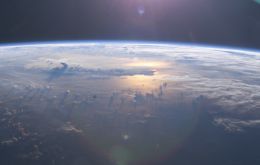
Human activity will push concentrations of planet-warming carbon dioxide in the atmosphere to levels 50% higher than before the industrial revolution this year, breaching a symbolic climate change threshold, the UK's Met Office forecast on Friday.
-
Tuesday, January 5th 2021 - 09:43 UTC
Bolivian glacier disappearing and the capital La Paz running out of water

Bolivia's Tuni glacier is disappearing faster than initially anticipated, according to scientists in the Andean nation, a predicament that will likely make worse water shortages already plaguing the capital La Paz, just 60 km away.
-
Monday, December 28th 2020 - 09:13 UTC
WHO chief warns Covid-19 will not be the last pandemic: climate change and animal welfare must be addressed
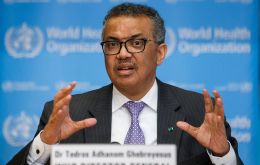
The coronavirus crisis will not be the last pandemic, and attempts to improve human health are “doomed” without tackling climate change and animal welfare, the World Health Organization's chief said.
-
Wednesday, December 23rd 2020 - 08:34 UTC
Kashmir's saffron “red gold” harvest depleted by climate change
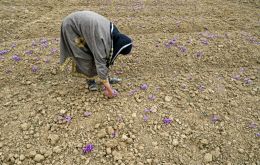
On sweeping fields once blanketed in lush purple, a thin and bedraggled crop of flowers was all farmers in Indian-administered Kashmir’s saffron-growing region Pampore had to show for this year’s harvest.
-
Saturday, December 19th 2020 - 09:50 UTC
A68a iceberg heading for South Georgia shifts direction and loses a chunk of mass
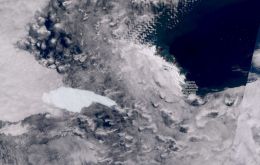
Strong currents have taken hold of a massive Antarctic iceberg that is on a collision course towards South Georgia Island, causing it to shift direction and lose a major chunk of mass, a scientist tracking its journey said on Friday.
-
Friday, December 11th 2020 - 09:37 UTC
EU leaders unblock massive €1.8 trillion financial package for the recovery of the economy and linked to climate change

European Union leaders unblocked on Thursday a €1.8 trillion financial package to help the economy recover from the pandemic-induced recession after reaching a compromise with Poland and Hungary, the chairman of EU leaders Charles Michel said.
